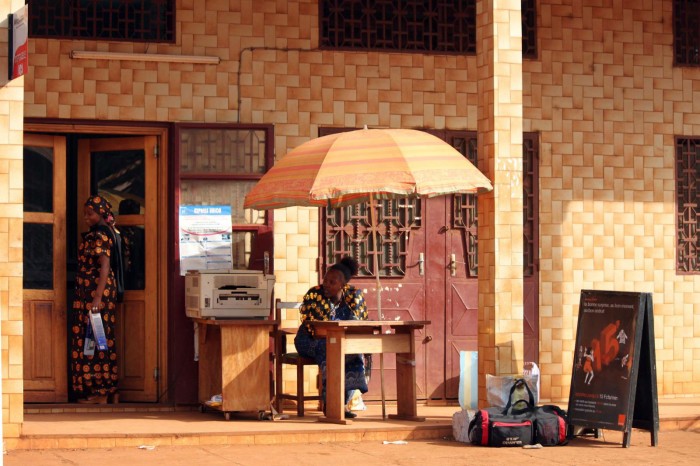Cameroon’s Internet Outage Is Draining Its Economy

On January 17, around 20 percent of the people in Cameroon found their Internet blocked. By now connections have been down for some four weeks, and the outage is generally believed to be politically motivated. But the country must face up to a cold, hard fact: if it’s blocking its Internet, it’s damaging its own economy.
The block mainly affects the northwest and southwest parts of the country, which are primarily English-speaking. There’s been no official statement made by the country’s government about the outage, nor from providers such as Orange Cameroon, Nexttel, or Vodafone Cameroon.
But the BBC has reported that many Cameroonians believe the outage is an intentional move to block protesters in Anglophone areas. The affected regions have recently been the scene of several antigovernment protests: English-speaking citizens complain about a Francophile government that, they claim, is marginalizing them.
While the mechanics of the outage are unclear, the BBC notes that all Internet provision in the country is controlled by a state-owned company that operates the nation’s optical fiber.
If the government has simply shut off access to some parts of the country, it is likely to be making an economic mistake. Late last year, an analysis by Darrell West at the Brookings Institution showed that countries damage their economy significantly when they choose to shut down Internet services. In a single year, he calculated, 81 disruptions in 19 countries cost those economies a total of at least $2.4 billion.
Cameroon will be no different. Speaking to CNN, Otto Akama, who runs a technology hub called ActivSpaces in the southwestern city of Buea, said that the ban had brought many businesses to a standstill. “We have empty offices all over the city. All tech companies are down. Most banks are down and ATM machines are not working, so people don’t have access to cash,” he explained. Motherboard reports that some people are opting to make potentially dangerous journeys to ensure that they can send and receive messages.
The UN has urged the Cameroon government to restore Internet provision in the country. If that’s not enough, the economic weight of inaction may be.
(Read more: BBC, CNN, Motherboard, “Shut Down the Internet, and the Economy Goes With It”)
Keep Reading
Most Popular
Large language models can do jaw-dropping things. But nobody knows exactly why.
And that's a problem. Figuring it out is one of the biggest scientific puzzles of our time and a crucial step towards controlling more powerful future models.
The problem with plug-in hybrids? Their drivers.
Plug-in hybrids are often sold as a transition to EVs, but new data from Europe shows we’re still underestimating the emissions they produce.
Google DeepMind’s new generative model makes Super Mario–like games from scratch
Genie learns how to control games by watching hours and hours of video. It could help train next-gen robots too.
How scientists traced a mysterious covid case back to six toilets
When wastewater surveillance turns into a hunt for a single infected individual, the ethics get tricky.
Stay connected
Get the latest updates from
MIT Technology Review
Discover special offers, top stories, upcoming events, and more.